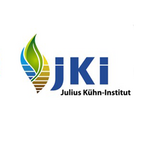Reduction of greenhouse gas emissions in livestock farming
Emissions from livestock farming accounted for 69.5 % of agricultural emissions in Germany in 2022. Methane emissions play a central role in the goal of reducing them. The climate-impacting trace gas methane (CH4) is produced during the digestion process in ruminants (cattle, sheep and goats) and during the storage of farm manure (solid manure, slurry). Starting points for greenhouse gas (GHG) reduction are animal health and longevity, feed choice and animal nutrition, including genomics of the rumen microbiome, as well as manure and slurry management. In addition, nitrous oxide (N2O) emissions occur in the form of excreta from grazing, housing on litter and the application of farm manure to fields.
Scroll to top




